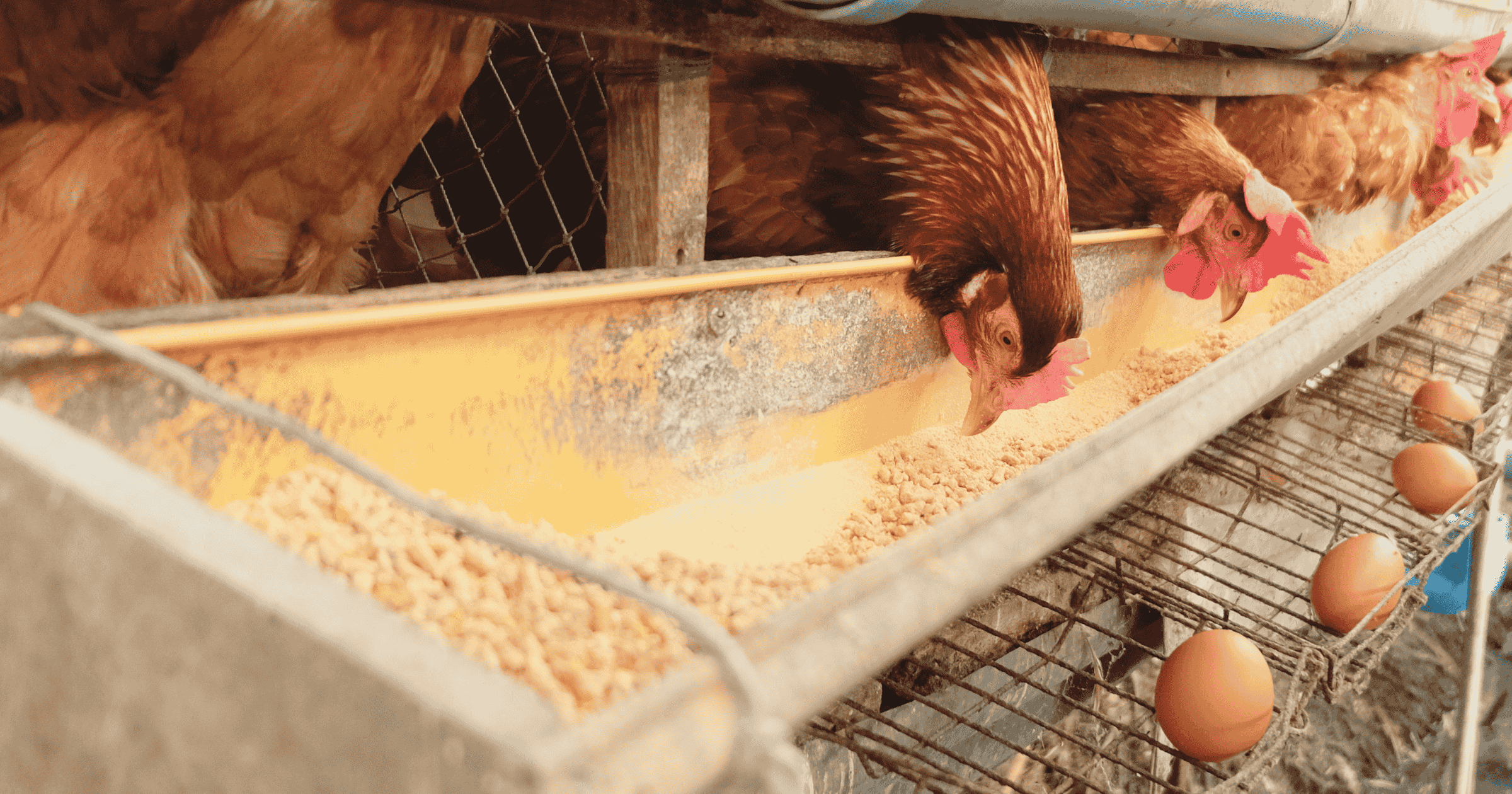
07 Apr How to Raise Chickens for Eggs in Nigeria: A Complete Guide for Beginners
Introduction: Starting Your Chicken Egg Farming Journey in Nigeria
Raising chickens for eggs is a rewarding and potentially lucrative venture in Nigeria. Whether you’re looking to supply eggs for your family or start a commercial egg farm, knowing the right techniques and practices is essential for success. In this guide, we’ll walk you through everything you need to know about raising chickens for egg production in Nigeria—from choosing the right breed to creating the ideal living environment for your hens.
1. Why Raise Chickens for Eggs in Nigeria?
Egg farming is a growing industry in Nigeria, and for good reason. With the increasing demand for fresh, local eggs, this business offers a steady income for farmers. In Nigeria, eggs are a vital source of protein, making them essential in both rural and urban diets.
Benefits of Raising Chickens for Eggs:
- Steady Income: Eggs are always in demand, and you can sell them directly to local markets, restaurants, or customers.
- Nutritional Benefits: Fresh eggs from your own hens are rich in protein, omega-3 fatty acids, and other essential nutrients.
- Small Start-up Cost: Compared to other farming ventures, raising chickens for eggs has a relatively low start-up cost, especially when starting small.
With the right knowledge and resources, you can easily build a sustainable egg farm in Nigeria.
2. Choosing the Right Chicken Breed for Egg Production
The first step in starting an egg farm is selecting the right breed of chickens. The breed you choose will determine the quantity and quality of eggs your hens will produce. In Nigeria, several breeds are known for their excellent egg-laying capabilities.
Popular Egg-Laying Breeds in Nigeria:
- White Leghorn: Known for high egg production, these hens are hardy and adaptable to various climates.
- Rhode Island Red: These chickens are both hardy and productive, laying brown eggs. They are also resistant to common diseases.
- Sussex: A good dual-purpose breed, Sussex hens are excellent layers of brown eggs and are known for their good temperament.
- Hy-Line Brown: A hybrid breed known for consistent egg production, particularly in commercial farms.
Choosing the right breed is important for maximizing egg production. In Nigeria, Leghorns and Rhode Island Reds are among the most popular choices for commercial egg farmers due to their consistent and high egg output.
3. Building the Perfect Chicken Coop
The next crucial step is to provide your hens with a safe, comfortable, and clean living environment. A well-built chicken coop will protect your chickens from predators, harsh weather, and diseases, while also encouraging optimal egg production.
Key Considerations for Building a Chicken Coop in Nigeria:
- Size: Each hen needs around 2 to 3 square feet of space in the coop. Overcrowding can lead to stress, reduced egg production, and health problems.
- Ventilation: Proper airflow is essential to prevent respiratory diseases and ensure your chickens stay healthy.
- Nesting Boxes: Provide a clean, quiet space for your hens to lay their eggs. Each box should be about 12 inches wide, 12 inches high, and 12 inches deep.
- Roosting Bars: Chickens need a place to roost at night. Install bars at least 2 feet off the ground for the hens to sleep comfortably.
- Access to Outdoors: If possible, allow your chickens to roam freely during the day. Free-range chickens often produce higher-quality eggs, and they benefit from foraging for food and exercise.
In Nigeria’s hot climate, ensure your coop is shaded and well-ventilated to keep your chickens cool. You can also add deep bedding in the nesting boxes to absorb moisture and reduce odors.
4. Feeding Your Chickens for Optimal Egg Production
A balanced diet is key to ensuring your hens remain healthy and productive. Proper nutrition will not only help your chickens produce more eggs but also improve the quality of the eggs.
Essential Components of a Chicken Diet:
- Layer Feed: High-quality layer feed is designed specifically for egg-laying hens. It contains a balanced mix of protein, calcium, and other essential nutrients.
- Grains: Chickens enjoy eating grains like maize and sorghum, which should be included in their diet.
- Calcium: Calcium is crucial for strong eggshells. You can provide calcium supplements like crushed oyster shells or limestone.
- Fresh Water: Always ensure your chickens have access to clean, fresh water to stay hydrated.
In Nigeria, local farms can often find affordable, quality feed from local suppliers. You can also supplement their diet with kitchen scraps and fresh vegetables to enhance their overall health and egg production.
5. Managing Health and Preventing Diseases
To keep your chickens healthy and productive, it’s important to establish a regular health management routine. This includes vaccinations, parasite control, and monitoring their overall well-being.
Tips for Keeping Chickens Healthy:
- Vaccination: Ensure your chickens are vaccinated against common diseases like Newcastle disease and Avian influenza.
- Biosecurity: Keep your chicken coop clean and ensure that you limit the introduction of new birds to avoid introducing diseases.
- Parasite Control: Regularly check for mites, lice, and other parasites, which can negatively impact egg production.
Additionally, keep your hens’ living area free of dampness, as this can encourage the growth of bacteria and fungi, leading to diseases.
6. Maximizing Egg Production
Egg production can vary based on several factors, including breed, age, diet, and environment. However, with the right care and management, you can optimize egg production.
Tips for Increasing Egg Production:
- Lighting: Hens need about 14-16 hours of light per day to maintain high egg production. You can supplement natural light with artificial lighting during shorter days.
- Age of Hens: Chickens typically start laying eggs at around 5 to 6 months of age. They lay best during their first year and gradually reduce egg production as they age.
- Stress Reduction: Keep your chickens in a calm, stress-free environment. Avoid overcrowding and ensure they have enough space to roam.
Maintaining a good lighting schedule and a consistent feeding routine will ensure your hens lay eggs consistently.
7. Marketing and Selling Your Eggs
Once your hens are laying eggs, the next step is selling them. You can either sell your eggs directly to consumers in local markets, supply businesses like restaurants, or even partner with egg delivery services in Lagos.
Tips for Selling Eggs in Nigeria:
- Local Farmers Markets: Farmers’ markets are a great place to sell fresh eggs to consumers.
- Online Sales: If you have a reliable supply, consider setting up an online shop for farm-fresh egg delivery within Lagos.
- Commercial Buyers: Partner with local businesses such as bakeries, restaurants, and hotels to supply eggs on a regular basis.
By selling your eggs locally, you’ll build a steady customer base, and the demand for farm-fresh eggs in Nigeria is steadily growing.
Conclusion: Start Raising Chickens for Eggs in Nigeria
Raising chickens for egg production in Nigeria is a great way to improve your livelihood, whether you’re doing it for personal consumption or as a business venture. By choosing the right breed, building a proper chicken coop, and providing optimal care and nutrition, you can ensure high-quality egg production.
The demand for local eggs is high, and with the right management practices, you can successfully raise chickens for eggs in Nigeria. So, get started today, and enjoy the benefits of fresh, nutritious eggs straight from your backyard!
Would you like to learn more about egg farming or raising chickens for eggs in Nigeria? Feel free to get in touch for personalized advice on starting your egg farm!hake it up before you fry it up!
Recent posts
- How to Make Akara and Moi Moi with Farm Eggs | Delicious Nigerian Recipes
- How to Make Perfect Omelettes with Farm Eggs | Easy, Delicious Recipe
- Easy Egg Salad Recipes with Farm Fresh Eggs | Delicious & Nutritious
- Deviled Eggs with Local Nigerian Ingredients | Easy Recipe
- Delicious Nigerian Dishes Made with Eggs | Tasty Egg Recipes
Your cart
Your cart is currently empty!








No Comments